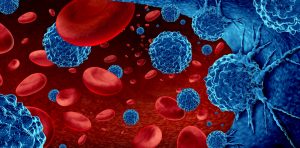
Roche dealt with two late-stage blows
pharmafile | December 19, 2014 | News story | Sales and Marketing | Alzheimer's, Alzheimer’s, Cancer, Kadcyla, Perjeta, Roche, Xeloda, trastuzumab emtansine
Swiss giant Roche’s breast cancer treatment Kadcyla has failed to meet its primary endpoint and its investigational Alzheimer’s treatment trial has been stopped early, in a double blow of bad news for the firm.
The results from 1,100 people found that Kadcyla (trastuzumab emtansine), either alone or in combination with Perjeta (pertuzumab), had no effect on how long people with previously untreated advanced HER2+ breast cancer lived without their disease getting worse when compared to Herceptin (trastuzumab) and taxane chemotherapy.
Kadcyla has shown impressive survival data when compared to GlaxoSmithKline’s Tyverb (lapatinib) plus Xeloda (capecitabine). But Roche has been criticised by NICE and breast cancer charities for refusing to lower the price of the drug – more than £90,000 per patient – and has failed to negotiate a patient access scheme with NICE that would have made the drug available to the NHS.
Roche also pulled out of a Phase III trial of gantenerumab, an investigational treatment for pre-dementia Alzheimer’s disease, based on the results of a futility analysis.
Gantenerumab (RG1450) is a monoclonal antibody designed to reduce levels of beta amyloid, a protein that accumulates in the brains of people with Alzheimer’s disease. Roche had hoped the study comprised of approximately 360 people in around 15 countries, would show that gantenerumab slows Alzheimer’s disease progression, improves memory and daily physical activities.
Roche says the company will continue to evaluate gantenerumab in Phase III of a later stage of Alzheimer’s disease, and two investigational medicines for Alzheimer’s in Phase II development (crenezumab, an anti-amyloid antibody, and RG1577, a monoamine oxidase-B inhibitor).
Dr Sandra Horning, chief medical officer and health of global product development at Roche, says the company remains committed to both drugs.
“We had hoped to show improvement in progression-free survival without the use of traditional chemotherapy in the first line treatment of patients with advanced HER2-positive breast cancer. While MARIANNE didn’t achieve this result, we will continue to study these medicines, as well as investigational treatments for other types of breast cancer, with the goal of improving outcomes for patients.
“We are disappointed because people with early stage Alzheimer’s need new medicines that delay disease progression. This is the first Phase III trial to evaluate a potential disease-modifying medicine in this early prodromal stage of Alzheimer’s disease. We remain committed to investigating new medicines for this devastating illness.”
Lilian Anekwe
Related Content

Genentech’s Columbi meets primary endpoint in phase 3 trial for lymphoma treatment
Genentech, part of the Roche Group, has announced that its phase 3 STARGLO trial has …

Geneos Therapeutics shares data from phase 1/2 trial for cancer vaccine
Geneos Therapeutics has announced that it has published positive safety, immunogenicity and efficacy data from …

Curve Therapeutics’ CSO publishes research on HIF inhibition for cancer treatment
Curve Therapeutics has announced that its chief scientific officer, Professor Ali Tavassoli has published research …








